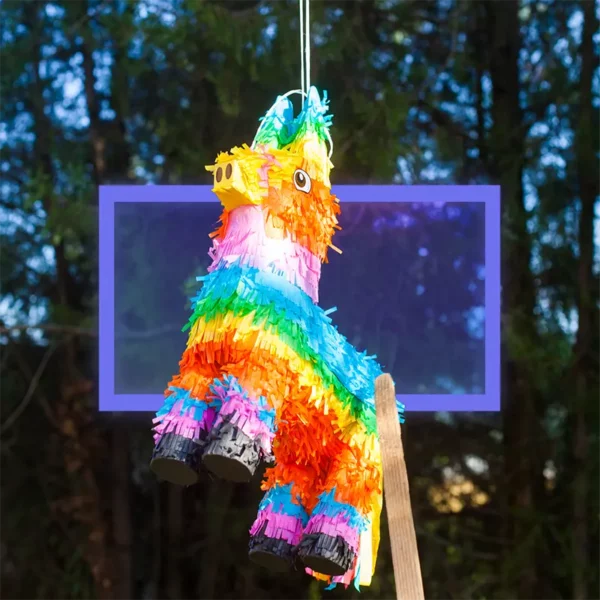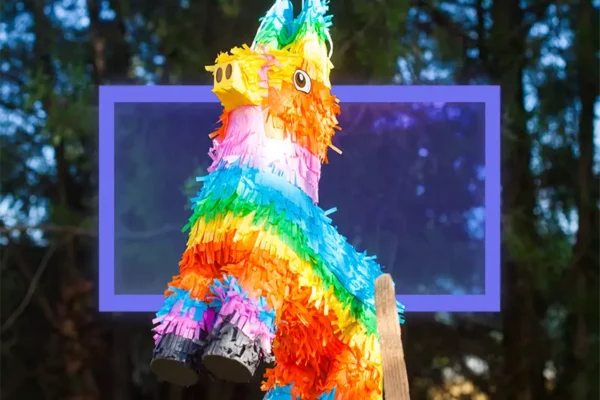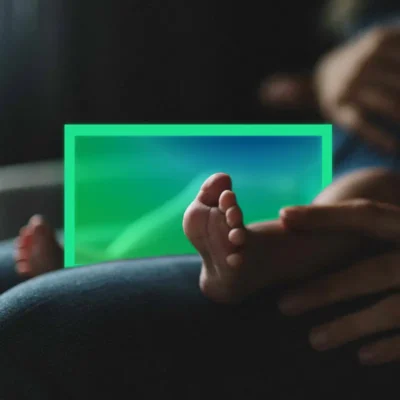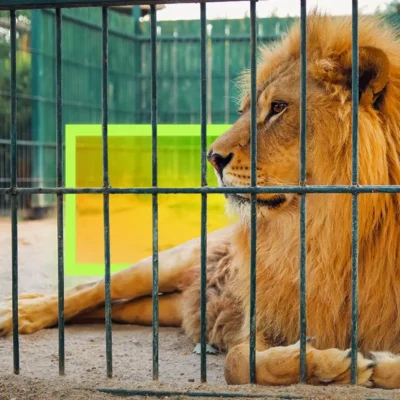The magic beyond our boundaries
Today’s storyteller Steven Ho grew up in a strict Vietnamese-American household where the stakes were always high. He felt an overwhelming pressure to walk the straight line set before him — a line of overachieving and excellence. As Steven grew up, he encountered places and circumstances that catapulted him into a deep curiosity and affection for the world around him. Steven began to wonder if there might be more than he could have ever expected, waiting for him outside the lines.


Table of Contents:
Transcript:
The magic beyond our boundaries
STEVEN HO: A few turns later, one of the older kids bashes the piñata. We hear it crack. The insides burst open. The candy explodes all over the concrete. We dive like we’ve never seen candy before. I have the scrapes on my knees to prove it.
I’m grinning like crazy. Oklahoma pushes the boundary lines my parents so carefully draw for me. It’s surprisingly beautiful outside these lines.
ROHAN GUNATILLAKE: Today’s storyteller Steven Ho grew up in a strict Vietnamese-American household where the stakes were always high. He felt an overwhelming pressure to walk the straight line set before him — a line of overachieving and excellence. As Steven grew up, he encountered places and circumstances that catapulted him into a deep curiosity and affection for the world around him. Steven began to wonder if there might be more than he could have ever expected, waiting for him outside the lines.
In this series, we combine immersive first-person stories, breathtaking music, and mindfulness prompts so that we may see our lives reflected back to us in other people’s stories. And that can lead to improvements in our own inner lives.
From WaitWhat, this is Meditative Story. I’m Rohan, and I’ll be your guide. The body relaxed. The body breathing. Your senses open. Your mind open. Meeting the world.
HO: My family and I wheel our suitcases through the sliding doors at the airport out into the muggy, summer air. When I tell my California friends that I’m gonna visit Oklahoma City, they’re like “for what?!” But I look forward to this trip all year. My uncle’s Koha’s light gray Toyota Highlander sits parked at the curb. He waits for us with the doors swung wide open. He greets us with the most infectious smile, “Hi boys and girls!”
I’m still queasy. I have crazy motion sickness from the flight. But the moment I board the van I literally feel my energy shift. My stomach settles. I can’t stop smiling. I’m eight years old. We’re here to see mom’s family. She’s one of 8 brothers and sisters. I know. Six of her siblings live side by side, near my grandparents. I have tons of uncles, aunts, and cousins I only get to see once a year.
“How about BBQ for lunch?” my uncle suggests. I immediately imagine a plate of pork ribs, steaks, sausages. My mouth waters. When we stop for lunch, we get burgers and onion rings from Charcoal Oven. Braum’s Ice cream. All the delicious American food that mom never let us have back home. Mom cooks every meal, and it’s always Vietnamese. Mom says barbecue gives you cancer. Fast food gives you cancer. Everything gives you cancer. She’s always worried about something. But the Oklahoma crew? They say, “Eat it. It’s delicious! Life’s short.”
As we head home in the van, my mom’s brother takes playful jabs at her. “The charred part of the BBQ meat is the best part!” Mom frowns at first.
“Stop being so serious. Relax,” he says.
Being in Oklahoma, my mom changes. Surrounded by family, her rigid exterior melts. I look at her smile; it’s so bright. I see it in her body; she’s loose. Far less scary than “San-Jose-mom.” Here, she’s away from her responsibilities and the heavy, heavy expectations she puts on herself. Her family’s love cracks something open for her. I love seeing her this way.
In the evening, we all gather at grandma and grandpa’s. They live here with my youngest uncle. My two youngest aunts live in the apartments one block down. When I walk in, there’s this cool blast of AC that welcomes us out of the summer heat. The cousins race around. Six different families rotate in at different times. Some of my aunts and uncles have married outside the Vietnamese-American community. So it’s a multi-cultural joyfest. I hear shrieks of delight, and warm greetings when another car pulls up. A group in the corner plays cards. There’s always a baby, crying, who needs a diaper changed.
We gather around the dining table for a second feast. The table is cluttered with soups and rice dishes, Vietnamese but different from what we eat back at home. Grandma makes her signature Che xoi nuoc: a dessert made of glutinous rice flour rolled into little balls with mung bean filling served in a warm palm sugar soup with ginger flavors. I scoop them out into a bowl and top with coconut milk and sesame seeds. Grandma and I smile at each other. She loves making this dish.
Sitting around the table, I take it all in, pushing from my mind that this trip will only last a week. Everybody’s curious about how I’m doing. I don’t have to strive or succeed to earn anyone’s love. They just really want me to be there. That makes me never want to leave.
For a few days each year in Oklahoma, I’m learning to trust a bigger world than the one I know.
GUNATILLAKE: How big does your world feel right now? Where are its boundaries? Imagine stepping outside of them with a smile.
HO: My life back home in San Jose is rigid.
I sit on the floor. My math books spread out on a box of hairspray cans. Mom and dad keep an eye on me at their clothing store downtown in San Jose, and I’m afraid of my mom. The stakes are constantly high. I have to do well in school. I have to excel in all areas. I have to perform. I spend a lot of time in the store. My orders: stay out of the way, do my homework.
Mom and dad work behind the glass counter. They’re always busy. Dad organizes; he restocks inventory. Mom’s firmly planted at the cash register, ringing up customers. But often the store is quiet.
Mom looks up at me. “Have you done your book report yet?”
“I don’t have one due,” I say proudly.
“Well then, pick a book, read it, and write me a report.”
Typical. Even when there’s no book report due, there’s somehow a book report due.
Around the store there’s a smattering of cheap tourist clothes that dad sources from LA, random jewelry, generic toys. Mom’s sewing machine sits on a little table; she tailors clothes for extra cash. The store’s not in the best part of town.
This afternoon the doors open and a tall, shirtless, long-haired guy in a pony tail comes in. My mom says, “Can I help you with anything?”
He replies, “No, I’m just looking.” And then out of nowhere he grabs two baby dresses in one hand, his bike in the other and takes off without paying. In a flash, my dad races after him. Mom’s frazzled. It’s not the first time.
My parents came to the U.S. from Vietnam in the 1980’s. Figuring out how to survive in a new country with four kids is tough. It stresses mom out, ya know. On top of that, we live with my dad’s parents. My grandfather has Alzheimers. It’s hard for everyone to get along. Over time mom’s stress translates to everything: her kids’ grades, cooking, money, work.
At home, mom and dad keep us in a cultural bubble to protect us from literally everything. Everyone not from Vietnam is either dangerous, or better than us. “Need car insurance? Only go to our Vietnamese contact.” “Need anything? Only go to the Vietnamese contact.” They’ll know how to really take care of us.
But these boundaries just make me more curious about the world and what else is out there.
On the third day in Oklahoma, we head to the nail salon my mom’s family owns. It feels cool, hip and everyone seems so relaxed. There’s a constant sound of chit chat; gossip’s in the air.
We share a huge pot of cousin Tracy’s signature dish: chili mac-n-cheese; it tastes glorious.
Once we get settled in at the salon, my aunt offers to do “a full set” on me. Manicure. Pedicure. Eyebrows. She runs a warm foot bath, soaks my feet, and cuts my cuticles. I’m the only boy sitting in one of the pedicure chairs. And it feels a little odd. But it costs fifty bucks, and she’s willing to do it for free!
The clients here cross race and culture. Black. White. Latino. Asian. My aunts laugh and joke with everyone. They’re all friends. I experience my family’s warm, open, and authentic embrace of cultures beyond our own.
The front door to the salon swings open. A man enters with a black trash bag. Turns out, he’s one of my aunt’s clients. He’s selling Timberland’s for 20 bucks. It doesn’t feel 100 percent legal but he’s met with warm smiles and welcomes. Everyone’s cool with it.
My aunt looks over and sees my surprise. “Do you want a pair Steven?” I shake my head, no. My aunt smiles, shrugs, and goes back to whatever she was doing.
Later that afternoon, we head to a party to meet a new baby cousin. The house is loud — full of people. Some I have never met before. There’s a bounce house and a plastic kiddie pool and children run around. He’s mixed — part Mexican, part Vietnamese. His grandma makes a delicious bean soup and tortillas. Me and all the kids swarm into the backyard, and one of my uncles tells us to stand in a circle.
Then I see it. A horse shaped piñata hangs from a tree. It’s my first time seeing one in real life. My uncle hands me a long stick and tells me it’s my turn. He wraps a blindfold around my eyes. I start swinging wildly in every direction. I couldn’t care less if I hit the thing or not, I’m just so happy to be surrounded by a ton of family.
A few turns later, one of the older kids bashes the piñata. We hear it crack. The insides burst open. The candy explodes all over the concrete. We dive like we’ve never seen candy before. I have the scrapes on my knees to prove it.
I’m grinning like crazy. Oklahoma pushes the boundary lines my parents so carefully draw for me. It’s surprisingly beautiful outside these lines.
My cousins light my curiosity about what else is out there. I want more of whatever this is.
GUNATILLAKE: I love this. Candy everywhere. Spilling over. In this moment Steven realizes that other ways of being are possible. Was there a moment like this for you? Bring it to mind. Bring it here.
HO: I’m 24 years old by the time I start working as an Emergency Room tech. It’s the dead of night — one of those rare moments in the trauma room at Stanford University Hospital where all is calm. The bright white overhead lights illuminate the near empty room. I finish restocking the blanket warmer before sitting down on a rolling chair in the center of the room.
My co-worker Richard joins me. He’s an experienced nurse, smart and respected. We start talking about life.
“How’s nursing school going?” Richard asks.
“Oh, I’m not going to nursing school,” I say.
I’ve worked at Stanford for 5 years. I like the job as an ER tech. It’s paying my bills. I have no aspirations to go further in the field. Everyone else comes here with a mission: to become a nurse or to get their Master’s. There’s always another rung on the ladder to climb.
I try to take that path. I take all the college pre-reqs and even did the MCATS, but I don’t get into medical school. Then I take more classes and thought about sonography school, or maybe I could be an x-ray tech. And then for some reason I don’t completely understand, I decide to add a theater class to my schedule at Foothills College in Los Altos.
Instantly, I’m hooked. Completely enamored. I’m surprised to find out I’m actually really good at theater, and they want me for their productions. I feel seen. It’s an unfamiliar feeling. Wonderful, but also confusing. I start thinking about scrapping everything medical and going all in on theater. But could I really do that? My parents worked so hard to get me a degree in health care. Was I really willing to switch my career? So instead, I have one foot in where I’m expected to be, and one foot out outside that boundary, in the world where I feel I actually belong.
“I’m studying theater,” I tell Richard.
“Theater?”
“Yeah. I want to be an actor. I’m doing auditions. I can work here two days a week and go out for auditions the other five.” He looks pretty disappointed. I can see it all over his face. It doesn’t click with him. It shouldn’t bother me, but it does.
“Steven,” he says. “It sounds like you’re lazy. Stop wasting your time. Just go to nursing school.”
“No, it’s okay,” I say. “I don’t think I want to. I like acting, even if I’m not sure that it’ll work out.”
“Just apply to nursing school,” he says. “It’s two years for the rest of your life. You could have a great life.”
I get where he’s coming from. A lot of the nurses have families. They have kids. Their lives are great. I feel a surge of insecurity. Because, I should have things figured out by now. Why don’t I want what everyone else wants?
I pick myself up and resume restocking. The place is eerily quiet, but Richard’s words ring in my head: “Just go to nursing school; It’s not that hard to have a good life, Steven.”
I’m standing behind a door. The lights from the stage beat down on me. It’s hot, and I’m sweating from all the built up anxiety. But this is it — my entrance.
I’m playing a silent role in the production of Aristophanes’ Assemblywomen. A short comedy in three parts.
My character, a slave called Parmonan, has only one job in the performance: lug a huge bag of potatoes from one side of the stage to the other.
It seems like a small part, but I guess I do it really well. Three days ago at rehearsal, the director calls the other two actors in the scene over to the edge of the stage. “Guys, you really need to step it up.” His face is deadpan. “You need to try to pull focus because right now all the focus is on Steven. He’s not even saying anything, and he’s the funniest person in the scene.”
I’m buzzing. I try to hide it and play it cool. But I’ve hardly ever imagined myself succeeding at anything not in my parents’ sight lines.
I’m back on stage tonight with more gusto than ever. On my cue I kick open the door, and slowly make my way down the steps. I drop the bag. I pick it up. I drop it again. Then, I get scolded. I’m nimble. I’m in shape. My body moves low. I’m able to jump, to roll. It’s pure physical comedy with a bag of potatoes.
I hear the audience roar with laughter.
This is what I’ve been looking for. That feeling that people want me around, just as I am. That I can belong to a wider world. That we can all help each other feel ease and joy even in unfamiliar terrain. It reminds me of the same feeling I felt all those years back on our childhood trips to Oklahoma.
As I make my way off stage, the sounds of laughter still echoes from the crowd. My mind bumps into a memory I’d almost forgotten.
I’m nine years old. I sit on the couch enveloped between mom and dad in our home in San Jose. It’s nighttime. The room is dark. The small TV box lights up the space. We’re watching “Paris by Night” — a variety sketch show that’s all the rage in Vietnamese families. We’re all laughing. Mom is nearly crying, she’s laughing so hard. She’s out of character for once. I love it. I sit here in the dark soaking it in. They sound free. They sound happy. Their laughter is like a language I’ve never heard before, and yet I know I never want to stop hearing it. I want it everywhere.
I imagine their laughter mixing with the crowd just outside the curtain. I know I’m transporting people to a rare, care-free moment. And at the same time, I feel enveloped by their delight. In the unfamiliar land outside the fences, I see possibilities. I feel accepted. It’s a magical space I didn’t think could exist for me.
We all have boundary lines drawn around us — expectations, comfort zones, family culture. Sometimes other people set those lines for us. Sometimes we set them for ourselves. Sometimes the lines are thick. Sometimes, porous. Many of us dutifully stay inside until something pushes us to get curious. Maybe there’s something waiting for us beyond our imagined limitations. Something that has always been ours, just waiting for us to wake up and explore it.
This night on stage is the smallest taste of what it will be for me. I don’t ever want it to stop.
Rohan’s closing meditation
GUNATILLAKE: Thank you Steven.
When thinking about the meditation we’ll do together, there is a little moment in Steven’s story that really struck me, maybe because it’s something that I recognize in my own.
It’s when he describes how his mother’s demeanor changes when she’s in Oklahoma. In Steven’s words: “Surrounded by family, her rigid exterior melts. I look at her smile: it’s so bright. I see it in her body, she’s loose — far less scary than ‘San-Jose-mom.’”
So we have these two modes: Oklahoma mom, where the body is loose. There is a smile; there is brightness. Then San Jose mom where there is tightness and rigidity.
Scanning your own body, what’s it like? What do you score it on the scale of rigid to loose?
Where on the road is it between San Jose and Oklahoma? If it helps to visualize it as a line: San Jose on the West Coast, and Oklahoma pretty much dead East, just over halfway to the other side of the country.
Maybe you’re not at either end, but perhaps somewhere in the middle, the body not fully fluid but also not super tight. Maybe Albuquerque, New Mexico?
Take some time and know the state of your body. Know where you are with it right now.
Being in Oklahoma makes Steven’s mother free-er — free-er in her body and also her mind.
And she transcends even that, when she watches “Paris By Night,” the Vietnamese variety show they watch all the time. What in your life makes you feel comfortable enough to let down all of your regular armor? What’s your “Paris by Night?”
How about you set the intention to do more of that thing that lets your armor down — that helps you transcend the normal?
I’m going to set my own intention, so how about you do too?
There is another lesson about body wisdom in Steven’s story that I’d like to close on.
It’s when he’s lugging that sack of potatoes across the stage. And he has the whole crowd in stitches without saying a word.
It’s silent physical comedy.
It’s also a reminder that how we are can change the mindstate of others without our even saying anything.
Let’s use that power wisely.
Thank you Steven; thank you Steven’s mom.
And thank you.
We’d love to hear your reflections, reactions, and intentions from this episode. Our handle is @meditativestory on all your social media platforms. And if you want to email us, you can do so via [email protected].





